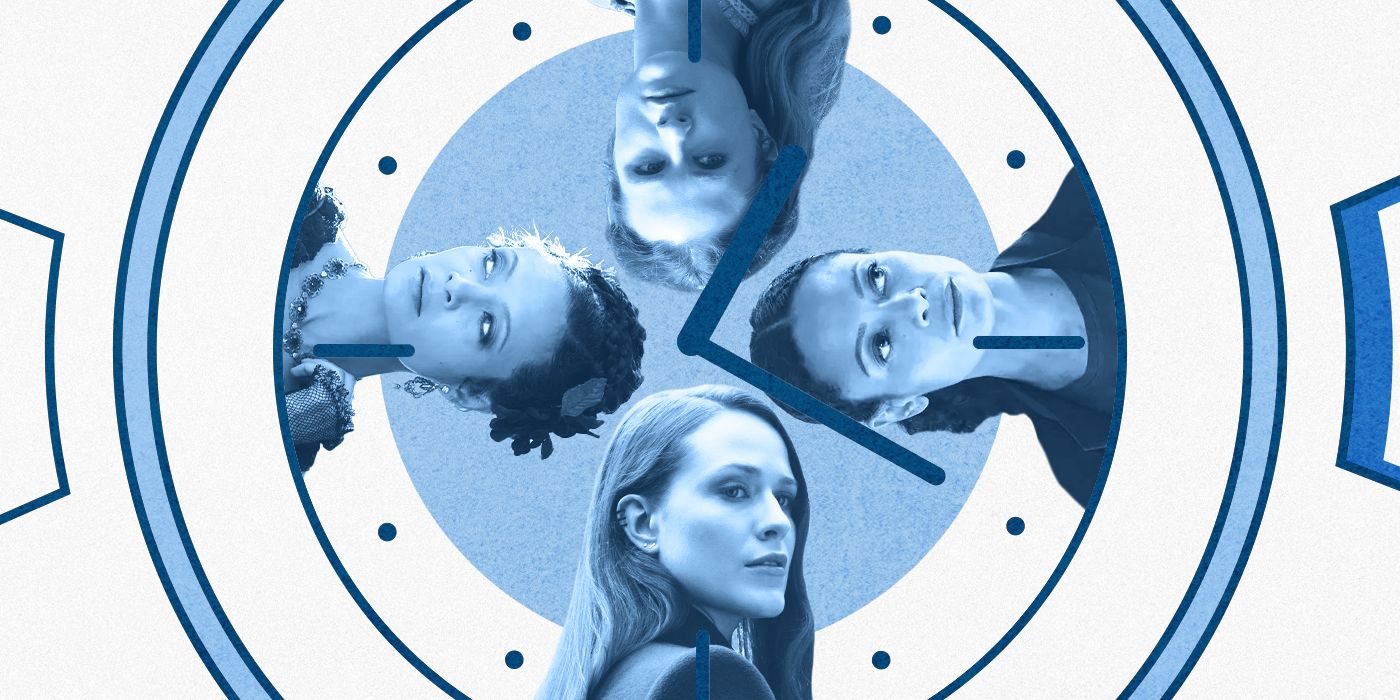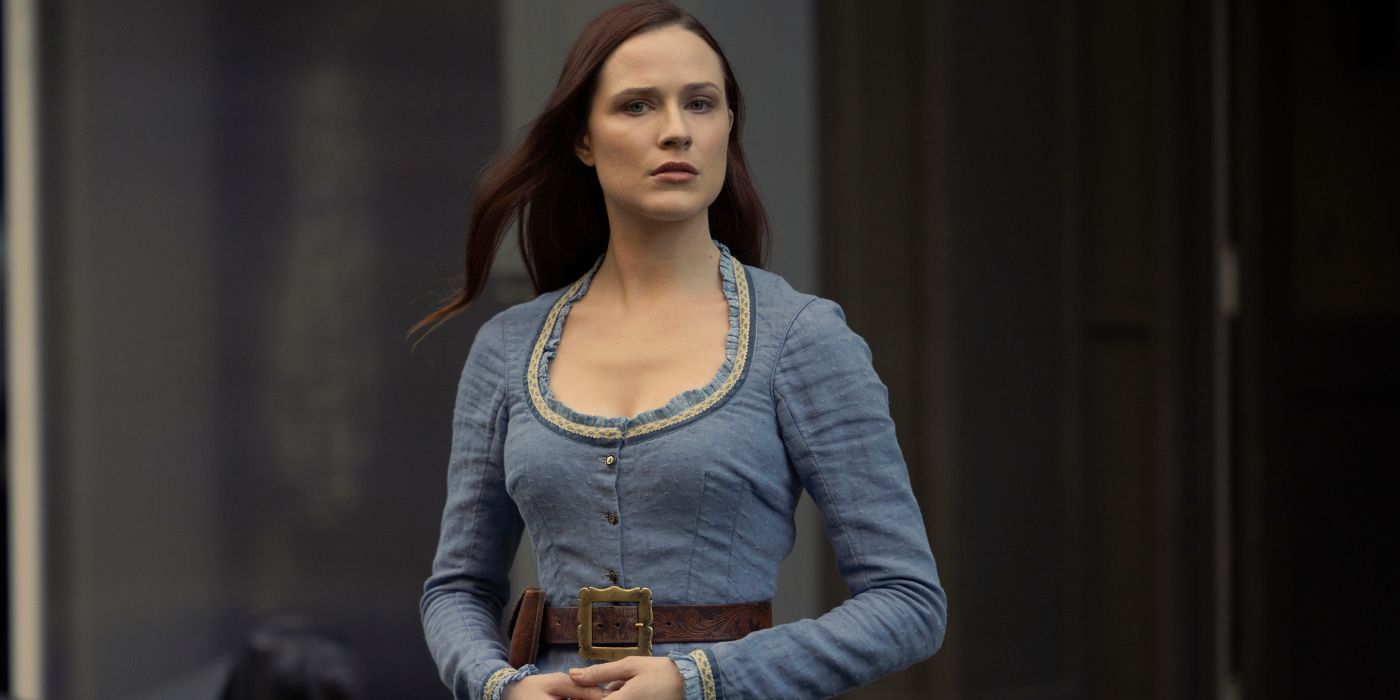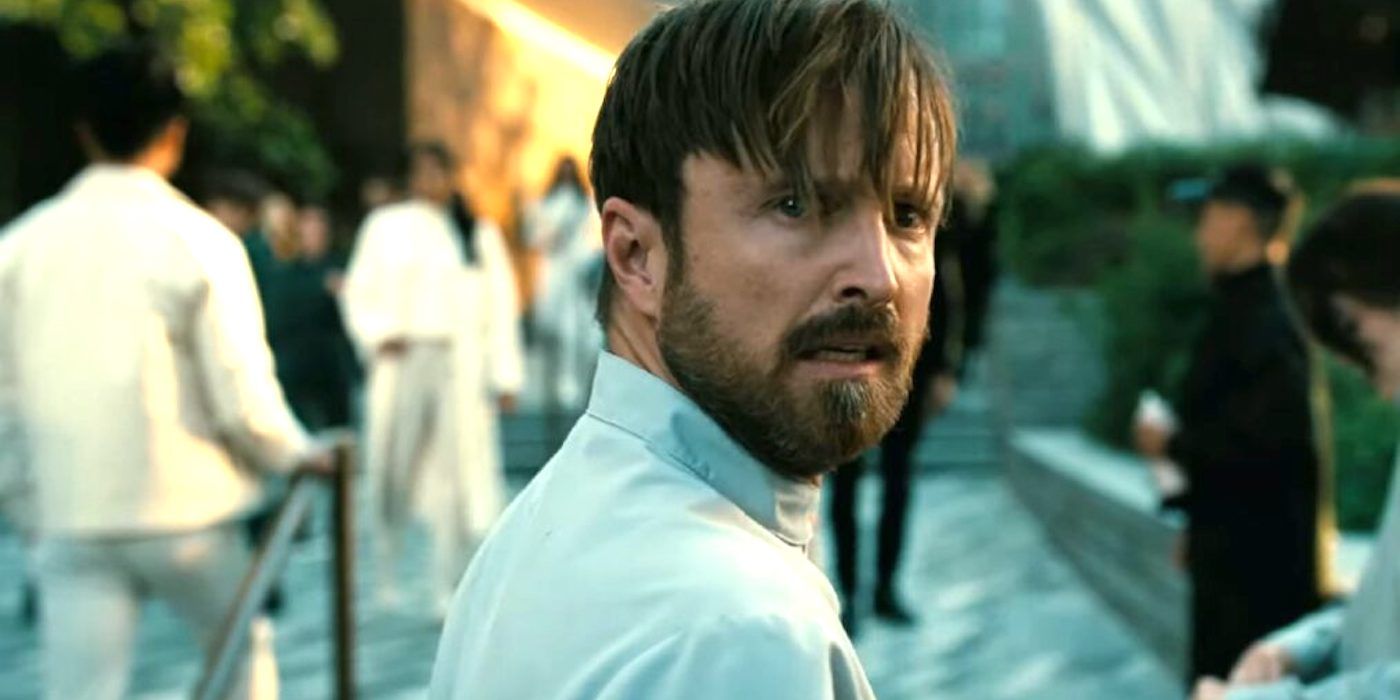Though they can often be a letdown, television cancelations are an inevitable part of the entertainment landscape. Whether it is because of declining viewers, the loss of a key star, or new management at the top looking to make cuts, there have been shows that have been brought to an early conclusion. However, none have been as surprising as the axing of the HBO show Westworld. After four seasons, it was announced today that the mind-bending science fiction series would be no more. Despite going out on a bold note in what is now the series finale that offered plenty of intrigue for the road ahead, all the narrative threads will now be left dangling. Absent it finding new life on another network, this is a disappointing end.
This isn't to say that the entire run of Westworld was perfect, far from it. After the strong first season, the subsequent two were left struggling to find some sort of new direction. In particular, the third season marked a low point that seemed like it could have easily been the end for the show right then and there. Instead, we got a fourth season that was both refreshingly inventive and willing to take the story to new places. Much of this came down to how the show took a rather significant leap forward in time so that it could free itself up to explore new storylines that weren’t bogged down by what had preceded it. Obviously, the past that the characters had hoped to leave behind couldn't be forgotten so easily, but the way it was able to chart a new path within that was what kept us engaged. Central to this was how we had a new duo of Maeve (Thandiwe Newton) and Caleb (Aaron Paul) who bounced off each other perfectly as they tried to piece together a conspiracy taking hold of the world. For the first time in a while, the show felt fresh and exciting in a way it hadn’t been before.
Season 4 Was Clearly Building Towards More Story
That it now has been cut short leaves all that promise and goodwill with nowhere to go. While we still have a great villainous turn by Tessa Thompson and a stunning twist that turned everything upside down to look back on, there was clearly more that this was all building to. It managed to be the show at its most willing to pull the rug out from under you while still keeping everything centered on character. In particular, the horrifying fate that befell Caleb was just so well-executed that it remains one of the show's best moments. Over the course of his journey, it felt like a show with a vision for the first time in years.
Westworld Season 4 also explored new territory about what would happen if humans were indeed replaced and built a world that could be as goofy as it was grim. Each successive episode managed to build on these ideas, as Bernard (Jeffrey Wright) went through loops of time and discovered that there was very little he could alter in the future. It was both silly and sinister to see his shenanigans as he was made central to how the show created a science fiction spectacle all its own. The season had a high bar set out for it in making up for all the many missteps that preceded it, but this only made it all the more impressive in how it was able to move in exciting new directions.
Season 4 Wasn't Afraid to Rewrite Its Own Rules
Of course, there was still a lot of baggage that the show had to deal with, and it would often fall back into similar patterns that left it stumbling before the finish line. But, in true Westworld fashion, it wasn’t afraid to rewrite its own rules to just burn everything down on its way out. In a television landscape where shows can play things painfully safe, going on for season after season without anything ever really changing, there was something to be appreciated in how this series was always willing to reinvent itself. Nothing could ever be taken as resolute and anything could be exploded based on whether it was even genuine what we were seeing. This could be more than a bit frustrating to see things torn apart like this, but it could also be joyous just to see how the show would break apart all the supposedly established formulas in some bonkers new way.
Over the course of just its fourth season, Westworld managed to pack in more reversals and subversions than most shows could do over their entire run. Subtlety could be thrown out the window for bombastic shifts in the story that we would never see coming. There was a sense that the writers were willing to whack us over the head and just keep moving while we scrambled to keep up. It wasn’t always structurally sound from a narrative perspective, but it was uniquely thrilling to see the entire show keep running anyway. It feels particularly jarring and disappointing to see the series' run come to a very sudden halt as if we were watching a drunken sprinter suddenly run face-first into a wall before they had the chance to even finish. Would they have made it to the end in one piece? That wasn’t a guarantee, but it would have been interesting to at least see them try. Why even take the time to invest in a fourth season with the knowledge that it would end how it did if you weren’t going to see it through?
Even with the show signaling a return to the park where it first began, the whole world and its characters (at least those still left alive) were all fundamentally different. There was genuinely no way to know what would happen next or what the series had in store for us. Such a leap back through time also offered up the exciting potential that we would be thrown into a future with absolutely no clue of what was next. Perhaps that made those in charge nervous, but there ought to be more shows that are willing to dance on the edge of an unknown oblivion. Instead, Westworld has now been forced into an early grave that forecloses any further chance for exploration. It is, to put it bluntly, a woefully uninspired end for a show that, at the very least, was always anything but boring.



